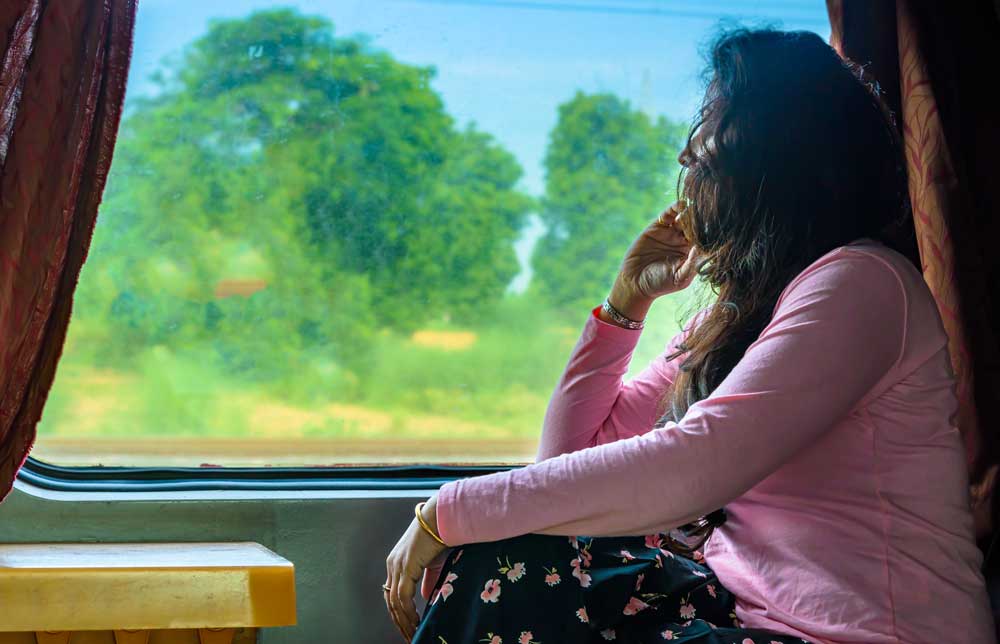Former COO of Meta, Sheryl Sandberg, lost her husband Dave Goldberg very suddenly in 2015. After his death, she took time off from work to travel with her children. In her book Option B, she discusses the importance of getting away from routine spaces of loss, both physically and emotionally to gain perspective. Similarly, Prince Harry, who lost his mother Princess Diana in a car crash when he was 12, says that travelling to Africa helped him process his intense grief, calling Botswana his second home. He has said, ‘Africa is where I feel closest to my mother’.
Grief is a universal experience, yet it is deeply personal. No two people grieve the same way, but one increasingly recognised method of coping is grief travel. This is a form of travel undertaken to mourn, reflect, remember, or heal. Whether it involves visiting a place associated with a lost loved one, undertaking a pilgrimage, or simply escaping to a quiet destination, grief travel is a powerful therapeutic tool.
Grief travel is not a recent phenomenon. People have long travelled to gravesites, ancestral homes, or sacred places to connect with the memory of someone they’ve lost. It could be a trip to scatter ashes at a meaningful place, a pilgrimage to a religious or spiritual site, a solo retreat, or a return to a childhood home.
Psychologist Dr Manjula MK speaks about grief as a journey, ‘According to the Kübler-Ross model, grief is described in five stages that include denial, anger, bargaining, depression, and acceptance. Here, movement and transformation are an integral part of this model, and individual experiences can vary. Grief travel can become a key part of this journey.’
Benefits Of Grief Travel
Dr Manjula says grief travel is helpful because:
1. Disruption of routine can accelerate the healing process. When one is surrounded by familiar reminders of loss such as an empty chair or a favourite room, travel offers an escape to breathe and cope away from daily emotional triggers.
2. A symbolic pilgrimage can be meaningful and honours the person who has died. It offers a sense of closure or ritual.
3. Slow travel can foster mindfulness. Think of long walks in nature, journaling on a quiet beach, or meditating in a forest retreat. This can help you process your emotions more clearly.
4. Grief often brings a sense of helplessness. Planning and undertaking a journey can restore one’s sense of agency and control at a time when emotions may feel chaotic.
5. Travelling to ancestral towns and homelands help you connect with roots and find comfort in a larger story or lineage. It can provide a profound sense of belonging, even after a personal loss.
6. A supportive travel group can help you share your grief. Some operators design specific tours for this, often led by grief counsellors or therapists.

What To Keep In Mind
Grief travel is not always peaceful and can be unpredictable. For starters, you might feel guilty travelling after a loss. It may appear disrespectful or escapist. Others may also wrestle with the idea of moving on, believing that it is disloyal. Remember though, it is about remembering your loss in a new and positive way, rather than forgetting. For this, you have to granting yourself permission to grieve differently.
For some of you, travelling after a loss may seem like the ideal thing to do, but can be financially or logistically difficult. The costs of travel, taking time off work, or family obligations can limit your options. Try local travel, such as a weekend getaway, or even a day trip to a nearby wildlife reserve or lake.
Sometimes, grief can just be exhausting. Travel requires planning, energy, and dealing with unfamiliar environments. If you’re keen to travel, choose a pace and destination that honours your energy and emotional limits. Don’t over-schedule. Allow for rest and unstructured time. Grieving travellers often need flexibility to cope with waves of emotion.
For solo travellers, especially those grieving deeply, safety is key. Letting friends or family know your itinerary and having support available can help.
Many who undertake grief travel find themselves creating new traditions. Annual trips to remember a parent. Returning to the same river where ashes were scattered. Visiting the town where a spouse grew up. Some grief travellers even turn their experiences into photobooks or blogs, helping others navigate similar terrain.